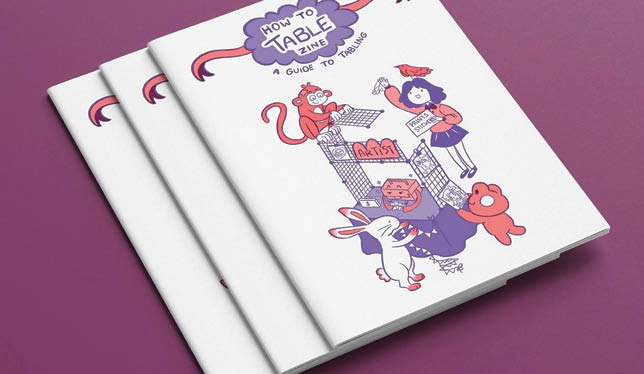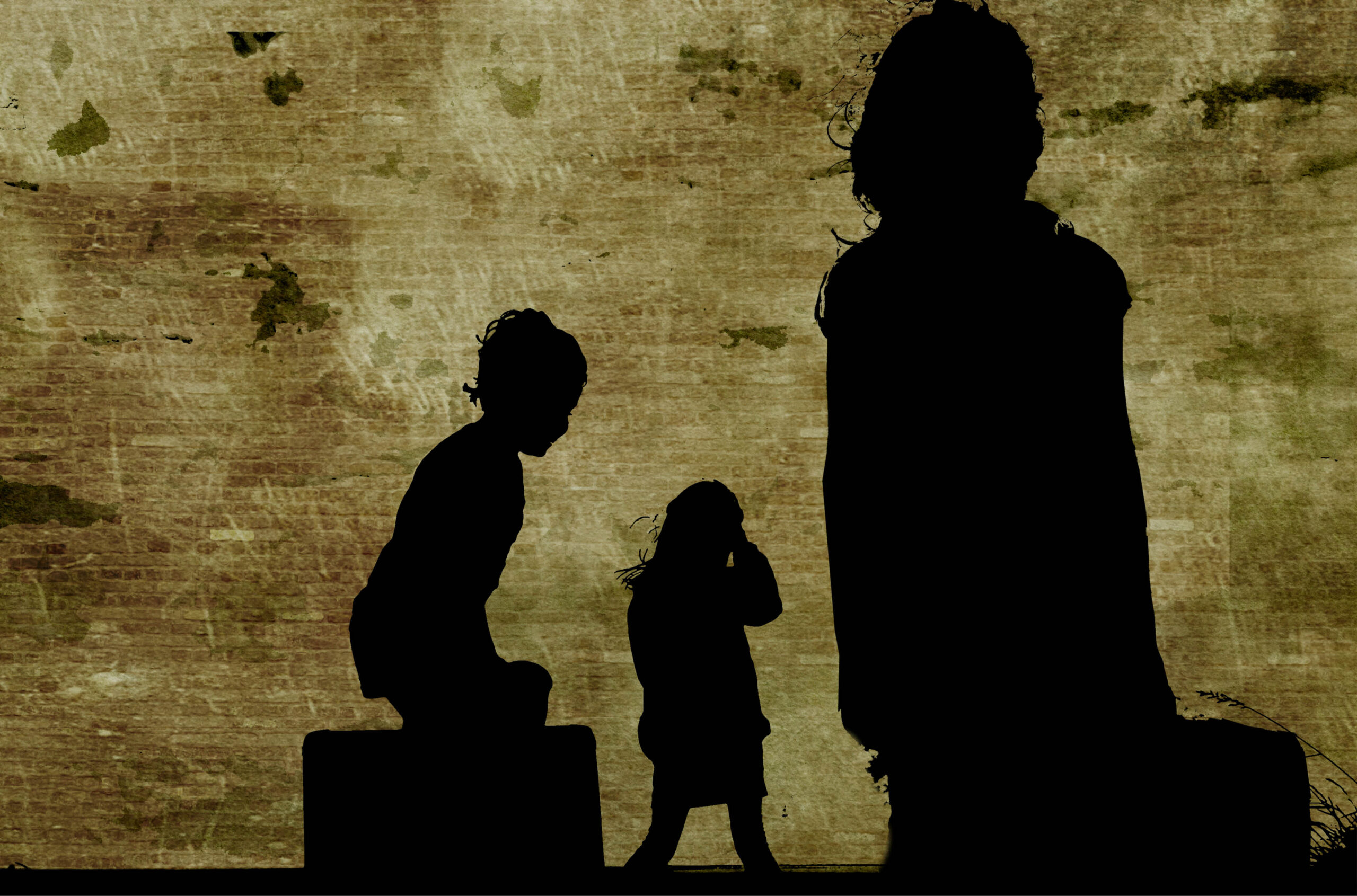New zine developed by OCAD U students helps artists perfect the art of tabling
‘The goal was to create something both practical and visually engaging,’ says one of the creators.

A new zine launched by OCAD University’s RBC Centre for Emerging Artists & Designers (CEAD) is helping artists display, promote and sell their work at artist alleys, markets, conventions, art fairs and other venues.
The How to Table zine was launched in the summer of 2024, as part of a CEAD-supported initiative that saw more than 45 OCAD U students market their work at the Toronto Comic Arts Festival (TCAF). Five of the school’s students and recent alumni —Anna Chen, Geann Gamboa, Manny McIntyre, Anoosh Mubashar and Anna Teolis — collaboratively researched, wrote, and illustrated the document under the guidance of faculty member and comic artist Fiona Smyth, who teaches a graphic-novel illustration course and is a general programmer for TCAF.
Each team member illustrated a different, two-page spread of the zine, incorporating a personal avatar and contributing their unique sensibilities to the design, which is united through colour. How to table was printed at OCAD U’s Studio 667 using risograph technology, which allows for inexpensive, high-quality, and versatile colour documents — a step up from the black-and-white photocopiers of zines of generations past. “The goal was to create something both practical and visually engaging,” said Ms. Gamboa, an illustrator who has successfully hosted several art markets and events, and most recently initiated the Toronto-based Mako Art Market to showcase local talent.
How to Table is a guide to the basics of “tabling”, covering definitions, pricing and payments, marketing research, social media and the physical setup of a table. Tabling – setting up a display and merchandise table – is an important strategy for artists to get their work into the public sphere as well as building community.
“In a situation like TCAF, students are on site with other emerging cartoonists,” noted Ms. Smyth. “They’re surrounded by publishers from around the world, by people who are self-publishing. They can network, trade work with other artists, and establish themselves as artists familiar with the publishing process.”
“OCAD U supports a very robust tabling and pop-up art-market ecosystem, with student groups organizing events on campus, and students and alumni selling all across the city,” said Alexandra Hong, project officer at CEAD. The centre had received many queries about how to get started in tabling, she said. When she was approached about supporting the creation of the zine, it was a no-brainer.
For the five co-creators of How to Table, the project was a chance to develop and hone professional skills: over the course of several months of weekly meetings, the students collaboratively researched, brainstormed, planned, and fleshed out the document, as well as strategies to promote it.
“OCAD students are immensely entrepreneurial,” said Ms. Hong. She pointed out that more than 80 per cent of the school’s alumni undertake entrepreneurship activities at some point during their careers. Moreover, she noted, CEAD’s support for the zine is part of the centre’s ongoing portfolio of entrepreneurial development efforts to help students and alumni launch and grow their businesses.
Ms. Mubashar, who focuses on large-scale paintings and printmaking, is grateful for the chance to work closely with an established artist like Ms. Smyth, to gain a hands-on understanding “of what works in a comic, the little, nitty-gritty things to look out for.” Not only does this zine serve to help emerging artists build a career, she said, “but it gave us a little insight into a different avenue of work as well.”
At a launch and dinner in July 2024, they presented the project to a small group of OCAD faculty and community. “It was an opportunity to talk with people that we’d wanted to reach out to,” said Ms. Teolis, an analog graphic novel artist. “I was able to talk about my thesis for some professors and got really great advice about future comic opportunities. It was really lovely.”
Ms. Gamboa agreed. “I think that’s the foundation of why I’m so drawn to tabling. It’s the community of artists you meet along the way.”
Reception has been positive: the initial print run of 450 zines has been quickly snapped up at CEAD and other OCAD U spaces. Copies are also available in OCAD U’s Zine Library and online, including in a descriptive transcript format.
Featured Jobs
- Education - Indigenous Lecturer or Assistant Professor, 2-year term (Teacher Education)Western University
- Nursing - Assistant Teaching ProfessorOntario Tech University
- Business - Assistant Professor (Digital Technology)Queen's University
- Psychology - Assistant ProfessorSt. Jerome's University
- Law - Assistant or Associate Professor (International Economic Law)Queen's University












Post a comment
University Affairs moderates all comments according to the following guidelines. If approved, comments generally appear within one business day. We may republish particularly insightful remarks in our print edition or elsewhere.